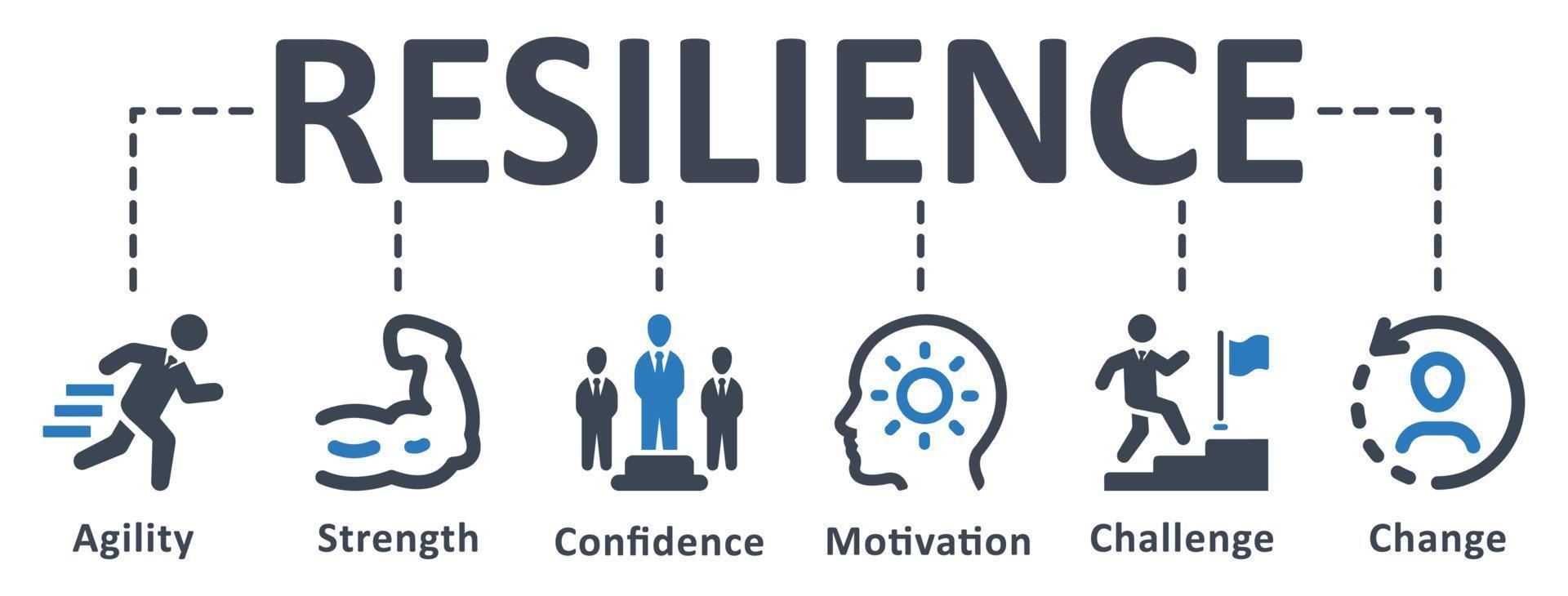Cultivating a Resilient Mindset
The Key to Building Healthy Bodies and Minds

In today's fast-paced world, where stressors seem to lurk around every corner and challenges arise unexpectedly, cultivating a resilient mindset is crucial. As a certified personal trainer and performance enhancement specialist, I've witnessed firsthand the transformative power of resilience in my clients' lives. It's not just about physical strength; it's about developing mental fortitude to navigate life's ups and downs with grace and determination. In this blog article, we'll explore what resilience means, why it's essential for both our bodies and minds, and practical strategies to cultivate it in our daily lives.
Resilience is often defined as the ability to bounce back from setbacks, adapt to change, and thrive in the face of adversity. It's not about avoiding challenges or pretending everything is fine when it's not. Instead, it's about embracing difficulties as opportunities for growth and learning. Just like our muscles grow stronger with resistance training, our resilience muscles strengthen when faced with challenges.
But why is resilience important for both our bodies and minds? The connection between physical health and mental well-being is undeniable. When we're stressed or overwhelmed, our bodies release cortisol, the stress hormone, which can have detrimental effects on our physical health, leading to inflammation, weakened immune system, and increased risk of chronic diseases. Conversely, when we're resilient, we're better equipped to cope with stress, leading to improved overall health and well-being.
So, how can we cultivate a resilient mindset in our daily lives? Here are some practical strategies to get started:
- Practice mindfulness: Mindfulness is the practice of being present in the moment without judgment. It allows us to observe our thoughts and emotions without getting swept away by them. By practicing mindfulness regularly, we can train our minds to stay calm and focused even in challenging situations.
- Set realistic goals: Setting goals gives us a sense of purpose and direction in life. However, it's essential to set goals that are achievable and realistic. Break larger goals down into smaller, manageable steps, and celebrate each milestone along the way. This not only boosts our confidence but also reinforces our resilience.
- Cultivate a strong support network: Surround yourself with supportive friends, family members, and mentors who lift you up and encourage you to keep going, even when the going gets tough. Having a strong support network can provide the emotional support and reassurance we need during difficult times.
- Practice self-care: Self-care is not selfish; it's essential for maintaining our physical, emotional, and mental well-being. Make time for activities that nourish your body and soul, whether it's exercising, meditating, spending time in nature, or indulging in a hobby you love.
- Embrace failure as a learning opportunity: Failure is not the opposite of success; it's a steppingstone to success. Instead of fearing failure, embrace it as a natural part of the learning process. Reflect on what went wrong, what you can learn from the experience, and how you can do better next time. This mindset shift can help build resilience and perseverance over time.
- Practice gratitude: Gratitude is a powerful antidote to stress and negativity. Take time each day to reflect on the things you're grateful for, whether it's the support of loved ones, the beauty of nature, or the small joys in life. Cultivating an attitude of gratitude can help shift your focus from what's lacking to what's abundant in your life.
- Stay physically active: Being active is a powerful tool for reducing stress, improving mood, enhancing cognitive function, or strengthening your immune system, and the benefits of regular physical activity extend far beyond the gym. By making exercise a priority in your life, you can cultivate resilience, boost your mental and emotional well-being, and enjoy a happier, healthier life overall.
Cultivating a resilient mindset is essential for building healthy bodies and minds. By practicing mindfulness, setting realistic goals, cultivating a strong support network, practicing self-care, embracing failure as a learning opportunity, practicing gratitude, and staying physically active, we can strengthen our resilience muscles and thrive in the face of adversity. Remember, resilience is not about avoiding challenges; it's about facing them head-on with courage, determination, and grace.
Resiliency Coaching & Performance
Looking to begin your journey to a healthier body? Resiliency Coaching & Performance provides personal training to residents of St Petersburg, the greater Tampa Bay Area and online programs worldwide.
Useful Links
Subscribe Now
Contact Us
We will get back to you as soon as possible.
Please try again later.
